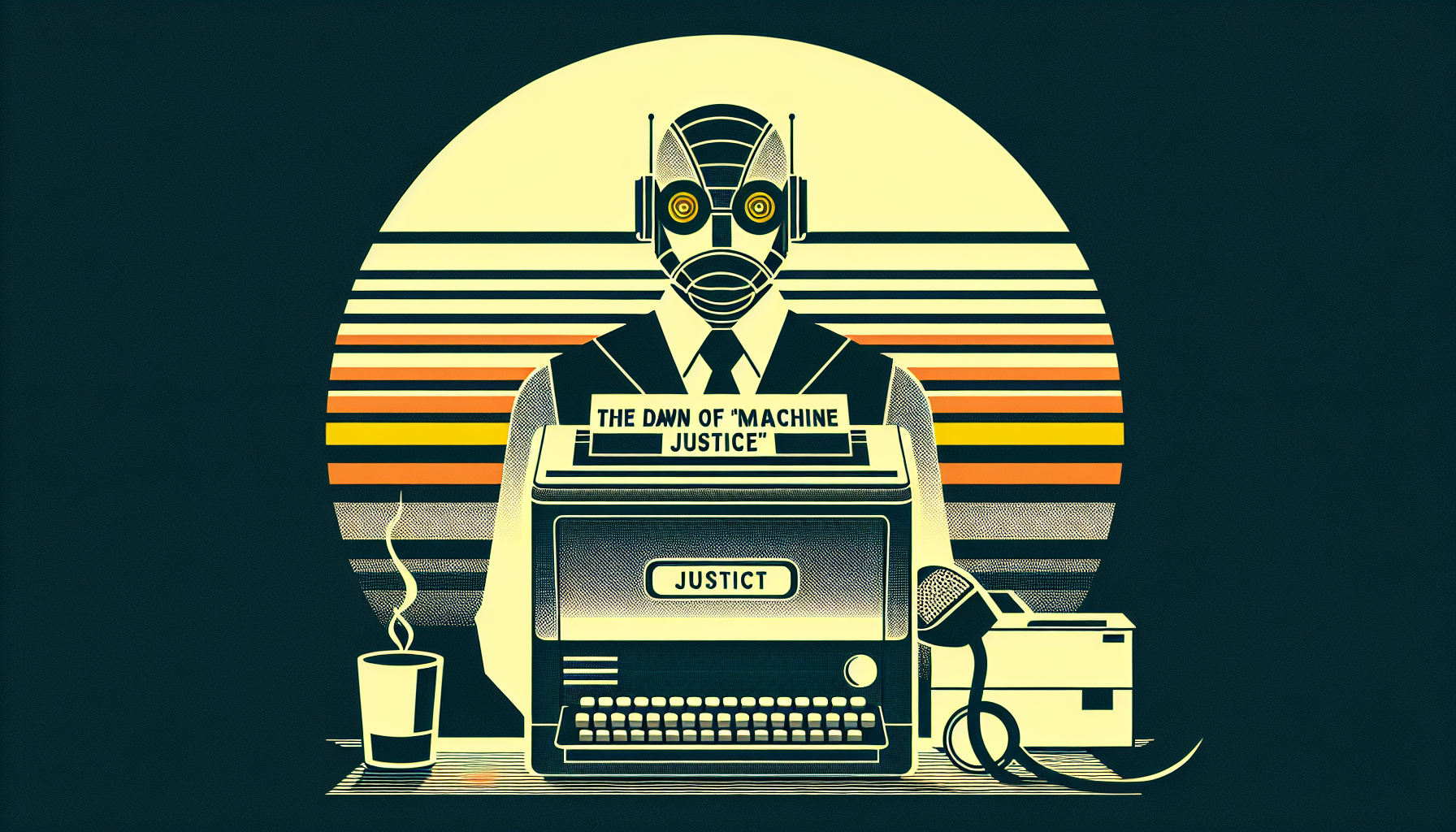In the grand cosmic drama of human existence, one might ask if artificial intelligence (AI) is the understudy waiting in the wings to assume the role of judge, jury, and maybe not executioner—after all, we don’t want to gild the lily. As humans, we have always strived for justice—a concept so elusive that it seems it was designed by a committee. As we edge ever closer to the advent of more sophisticated AI systems, the notion of machine justice raises questions that are both tantalizing and terrifying.
AI: The Robed Judge of Tomorrow?
The allure of machine justice lies in its promise of impartiality. Picture this: an AI system that is entirely devoid of bias, immune to tiredness, and unimpressed by lawyers who insist on overusing the word ‘aforementioned’. Such an AI could analyze evidence at lightning speed with the accuracy of an Olympic archer, while never stopping to sip coffee or browse amusing cat videos.
Further, AI could help alleviate the workload of an overburdened judicial system. With robots taking care of parking disputes and similar legal trivialities, human judges could focus on more pressing matters, such as whether the array of decorative gavels should have their own shelf.
The Fairness Conundrum
The real test of AI arbiters, however, is how they might handle the nuances of fairness. Human conflict often involves complex emotional landscapes that only an experienced judge—or perhaps a marriage counselor—can navigate. While AI might excel at dissecting legal codes and precedent, it’s unclear if it could comprehend the subtleties of human motivations. It’s like asking a goldfish to appreciate “King Lear.” Technically possible, but you wouldn’t want to put your money on it understanding the plot.
Further complicating matters is the issue of bias. Human biases, when fed into AI systems, can manifest themselves in alarming ways, turning our impartial judge into a robed version of one of those three-eyed fish from The Simpsons. If data sets are flawed, machine decisions might reflect and even amplify those flaws, more closely resembling human folly than an ideal of incorruptibility.
Can AI Understand Human Context?
Context is another hurdle. To borrow a phrase from literature, no AI is an island, entire of itself. Effective judgment requires not just a computational dissection of facts and laws, but also a holistic understanding of societal, cultural, and historical contexts. Consider a case involving new social norms or emerging technologies. How would an AI ever ‘get the joke’ if the context isn’t spelled out in binary?
AIs are fundamentally different in that they lack a lived experience. They don’t know what it’s like to have a bad hair day, trip over a Lego barefooted, or have their favorite ice cream discontinued. Emotional intelligence, the kind that a wise judge might exhibit when ruling on matters of deep personal impact, requires empathy—a quality notably absent in silicon-based life. An AI might know the exact statistical success rate of rehabilitation programs, but it won’t capture the essence of a redemptive narrative.
The Transparency Dilemma
If AI is to be used in legal proceedings, maintaining transparency becomes critical. Legal systems are structured around the notion of transparency and accountability, facets that are sometimes murky when it comes to machine learning algorithms. Imagine a courtroom where the only explanation for a judgement is “because the computer said so.” It’s like trying to argue your speeding ticket when the radar gun has been replaced by an inscrutable black box.
Thus, the need for interpretability in AI decisions could impact the potential application of AI as an arbiter of justice. Transparent decision-making doesn’t just facilitate trust but also ensures that the systems themselves are constantly evaluated for fairness and accuracy.
The Gavel of the Future
So, what’s the verdict? While the prospect of machine judge can be both fascinating and gut-wrenchingly comedic to envision, it’s unlikely that AI will entirely replace human judges any time soon. More practically, it will serve as a valuable assistant in the judicial process—like a Swiss Army knife for legal issues, but minus the corkscrew. AI can contribute to preliminary analyses, identify case pattern recognitions, and ensure that no parking ticket is left unexamined.
In conclusion, while AI offers incredible potential for impartiality and efficiency, its current limitations mean that it must tread cautiously in the legal realm. AI isn’t ready to don the robes alone, but as a tag-team partner with a human collaborator, it stands to bring the quest for fairness closer to its aspirational ideal. One day, with meticulous care and forethought—sprinkled with a little humor—AI might just be a fair arbiter in human conflicts unless it decides to run away and join the Cirque du Soleil instead.

Leave a Reply